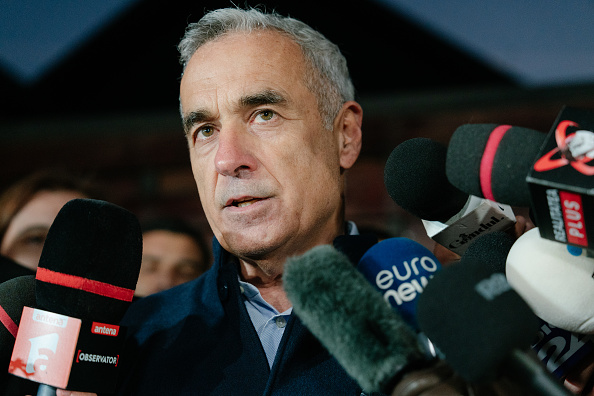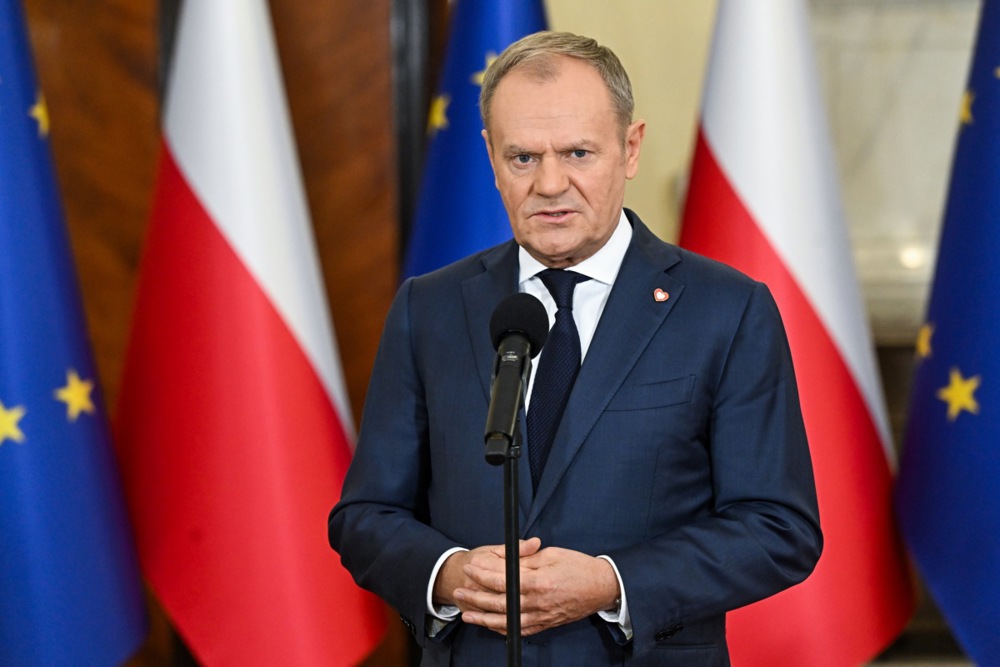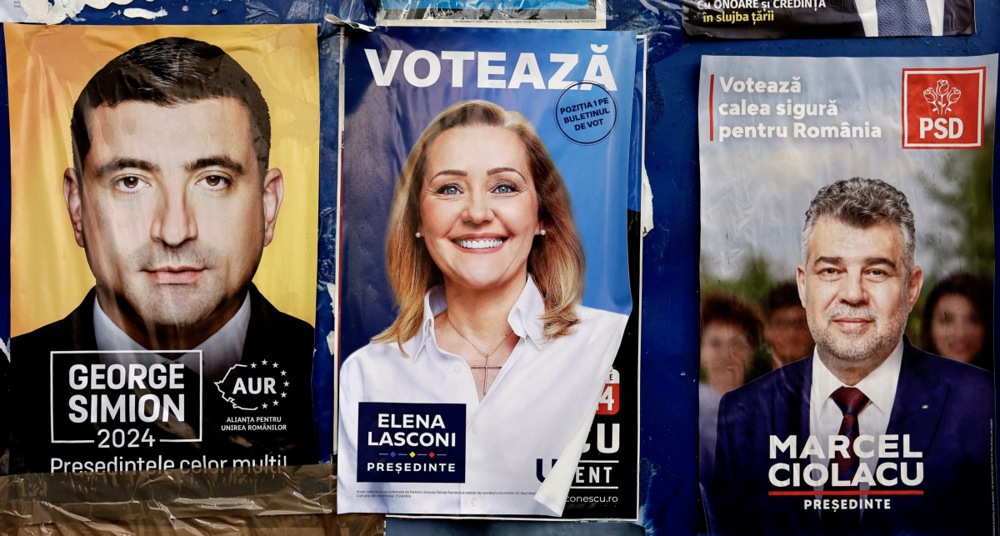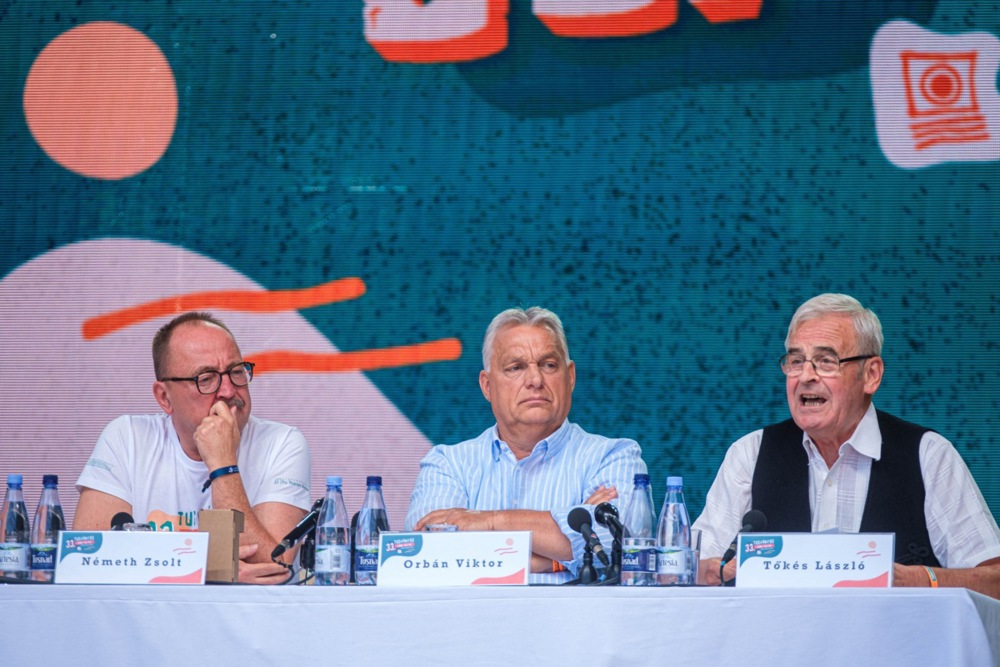Romanian prosecutors have taken action against individuals connected with the election campaign of right-wing Romanian candidate Călin Georgescu in the wake of a decision by Romania’s top court to annul the election
On December 7, a day after the Constitutional Court’s move and just two days before final round on December 9, authorities had searched several properties in an investigation into alleged illegal financing of the election campaign by the front-runner Georgescu.
According to Reuters, prosecutors on December 7 said three raids had taken place in the central city of Brasov.
“The searches target the possible involvement of an individual in the illegal financing of the electoral campaign of a candidate for the Presidency of Romania, through the use of sums of money… [that] could come from the commission of crimes, being subsequently introduced into a money laundering process,” prosecutors said in a statement.
Romanian media reported the searches have led to arrests being made, with money, allegedly intended for illegal campaign financing, and weapons seized.
With the final round of the election due to be held on December 8 and the “items” discovered on December 7, it has not been explained how they might be linked to funding the actual campaign.
The decision of the court to annul the first round of voting came after it was won by the hard-right independent Georgescu with 23 per cent. He topped both the other candidates representing the ruling socialist-liberal coalition (PSD and PNL), who were eliminated.
The move by the court was made despite the fact that it had ruled a week earlier there had been no irregularities nor fraud in the first round.
In addition, no action has been taken regarding the validity or otherwise of the parliamentary election on December 1, which the ruling PSD had won.
Annulment of the presidential election was allegedly made on the basis of declassified documents provided by Romanian security services.
These concentrated on the way Georgescu’s campaign had been allegedly promoted by “Russian influence” and that “bots” had been extensively used to boost popularity on social media platform TikTok.
The documents released thus far, though, did not reveal why the authorities had not alerted the general public to what they viewed as a “Russian influence” campaign before the first round of voting or whether they took any measures to counter it.
TikTok has denied giving Georgescu special treatment, saying his account was labelled as a political one and treated like any other such.
Russia has also denied accusations by Romanian officials of meddling in the election.
Russian Foreign Minister Sergei Lavrov was quoted by TASS news agency on December 7 as saying: “We are deeply indifferent to what they are doing there, trying to justify their machinations.”
A second-round vote to decide the outcome of the election had been planned for December 8, until the court’s ruling and now the whole election process, including the registration of candidates, will have to start afresh.
No date nor timetable has been set but there are doubts as to whether Georgescu will be able to re-register or campaign again.
Both he and the candidate who came second, the centre-right’s (USR) Elena Lasconi, have condemned the decision to annul the vote as an attack on democracy and an attempt by the ruling Socialist-Liberal coalition to cling to power through the use of their allies in the top court.
Lasconi has said it represented “trampling on democracy” and that the decision of the court was both “immoral and illegal”.
Following the court’s move, Georgescu, interviewed by SkyNews, said: “The constitutional court of Romania … is a Mafia court of Romania”, denying having any links with Russia or illegal campaign financing and accusing the present government of a “coup d’état”.
He also claimed the court had been pressured into annulling the election by a group of European Union and NATO countries intent on subverting democracy in his country due to their desire to maintain the war in Ukraine.
The reactions from NATO and the EU have, thus far, been supportive of the Romanian Government. The outgoing US administration has said that no country should allow foreign interference in its elections. European Commission President Ursula von der Leyen in a telephone call with Romanian President Klaus Iohannis reportedly concentrated on the need to protect social media from “hostile” foreign influence.
No consideration appears to have been given to the potential use Article 7 of the Lisbon Treaty, which allows the EU to suspend funding and voting rights for member states who violate the principles of democracy and the rule of law.
That article was introduced in the 2000s to be used in situations when a country stops holding democratic elections – not just for violations regarding the independence of the judiciary, which it has, unsuccessfully, attempted to bring against Poland and Hungary.





